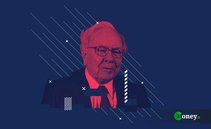The recent sell-off by Berkshire Hathaway chairman Warren Buffett has Apple analysts and investors worried. Should we expect a decline?

The recent decisions by Warren Buffett, the famous investor and CEO of Berkshire Hathaway, to reduce holdings in major stocks such as Apple and Bank of America have raised concerns among market analysts. That’s because Apple and Bank of America are not small holdings in Berkshire Hathaway’s portfolio: they are the two largest, and sales of these stocks, unlike others such as Verizon (VZ) or HP Inc. (HPQ), have a significant impact. But what could have motivated Buffett to make these moves?
Apple: why was this decision made?
Apple shares have been one of the largest and most profitable holdings for Berkshire Hathaway. Buffett began buying Apple shares between the first quarter of 2016 and the first quarter of 2018, when the stock price was below $46, taking advantage of a very favorable price-to-earnings (P/E) ratio of around 15. Today, Apple’s P/E has risen to around 34, a level much higher than the historical standards of the company and the market in general.
With this significant increase in the P/E, Apple shares now appear more expensive than when Buffett made his initial purchases. Many believe that this valuation should be enough to explain, at least in part, the decision to reduce the position. It is well known that Buffett traditionally prefers to buy shares of solid companies when they are undervalued relative to their intrinsic value, and therefore he may have judged Apple to be overvalued at current prices. In reality, there may be something deeper to analyze.
leggi anche
Stocks Warren Buffett bought and sold in Q2 2024

Why the Bank of America Stake Cut
The Bank of America cut may have more strategic reasons. Bank of America is another large holding in Berkshire Hathaway’s portfolio, but unlike Apple, the banking sector is subject to tighter regulation and a changing economic environment. It is believed that Buffett may have taken a cue from similar moves in the past, such as selling Chubb shares, to rebalance the portfolio and manage risk in the financial sector. In other words, Buffett may have wanted to reduce Berkshire’s exposure to the banking sector in anticipation of possible economic turmoil or regulatory changes, such as upcoming interest rate cuts.
Why all the worry?
One area that many are pondering is the tax cost associated with the sales. Long-term capital gains account for 80-85% of the net proceeds of these deals, which means Berkshire Hathaway has to forgo 16-17% of its capital gains to the U.S. Internal Revenue Service (IRS). This appears to run counter to Buffett’s traditional approach, which has been to hold his holdings for the long term to minimize tax impact and maximize the growth of the companies he invests in.
The fact that Buffett has agreed to incur these costs may suggest that the well-known investor has deep motivations for reducing his holdings in Apple and Bank of America. This may not simply be a matter of rebalancing or the investor’s need to realize profits; it could be a change in his outlook on the future of these companies or the market as a whole.
Original article published on Money.it Italy 2024-09-08 07:48:00. Original title: Azioni, cosa si nasconde dietro le recenti vendite di Warren Buffett?




